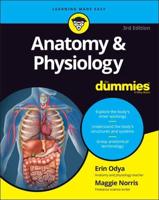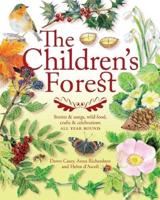Publisher's Synopsis
Limited materials will encourage more thoughtful responses.Creativity, an ability to do most with least, is developed.In art as in science the task of combining many variables is highly skilled.Repeat something rather than use too great a variety of materials.The artist, during the act of creating a work is expressing something.Expression is a unique personal action.For example three artists attempt to paint the same subject, exactly as seen.They will finish with three different works.The differences can be attributed to the various artists' expression.Their works are symbols for this expression.Expression is related to emotion.Although the individual may not be conscious of what that emotion is.The presence of emotion creates a tension (a feeling).This tension is not necessarily that emotion, but an awareness of an emotional state.Expression is an act bringing into perceptual form symbols for that awareness.It is thus related to that the underlying emotional state.The expressive act is not necessarily related to any particular audience.There is a difference between arousing emotion in an audience, which is intended.This is manipulative and a form of communication.A similar arousal can be the result of expression.Such expression denotes and belongs to an individual.It is actually a characteristic of individuals.It is not a form of communication although observers are often mistaken in this regard.There is a difference between expressing and exhibiting symptoms of emotion.The former is necessary for artistic activity and is a personal reaction to a stimulus.Symptoms of emotion are what an observer sees.They may be manipulation of the appropriate symbols without any emotion at all (like an actor).The relationship between an artist and the work is thus a personal one.It is linked to the inner state of the artist prior to, and during, the process of creating.That may ultimately be a work of art.Also learn about realism by observing.Continue with the subject matter you want to paint really well.Then you continue down the correct path (for you) for your focus is always on portraits, landscapes, the sea, or whatever.Even from the start you can become a specialist if you focus on something you are interested in.This will also help maintain the necessary motivation while you learn.Observing your chosen painting focus so you are limited to things you can actually look at.Make notes, do sketches and record what you can see then draw on that.So make a habit of carrying a small sketchpad or even scraps of paper and a pen or pencil.Then your observation helps you understand a landscape, or whatever you choose.Over time you develop the individual paining skills needed and also know how to paint your subject your way.Eventually you can focus on another subject and if related to your original theme you will learn much quicker.From one breed of dog to another is an example.Then from one kind of animal to another for you'll note the similarities and also the differences.People who do things well also do them faster than those who don't for it's one of the indicators of skill.Several small paintings are better for learning than one larger one (they just take more time).Skill in art, sport or even medicine is practiced behaviour in action.Most artists don't do anywhere near enough paintings to develop any real skill.Painting a large number of experiments will develop painting skills, and also attitude.You'll become more discerning, because you acquire more experience.Work on a number of experiments at the same time to increase productivity.Working on a number of experiments at the same time also saves materials.Avoid major works for they take time (even years), are usually done slowly and are often large and complex.You might occasionally do a slightly larger experiment.









